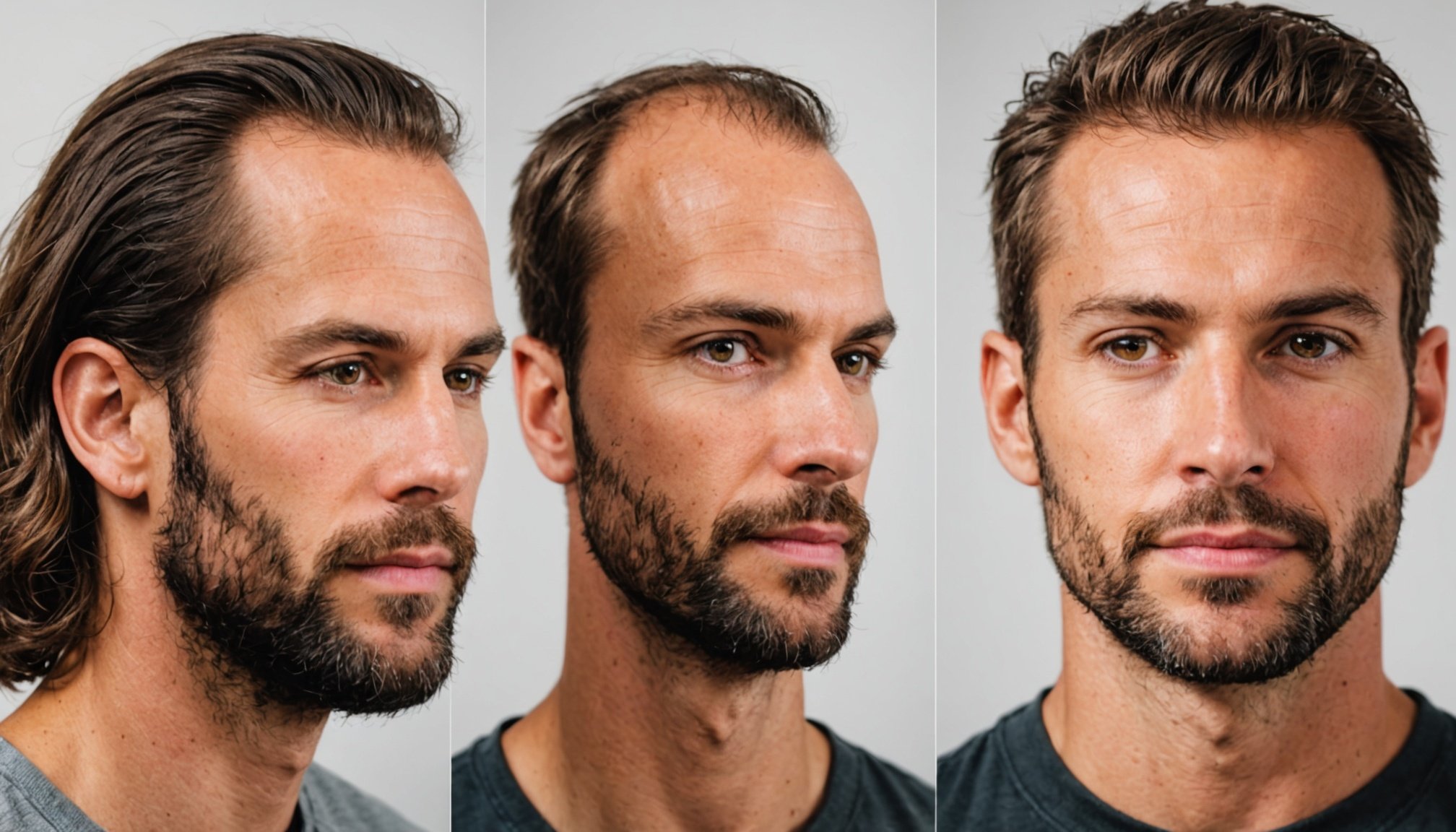Understanding Plant-Based Proteins in Hair Restoration
The use of plant-based proteins in hair restoration is gaining popularity due to their natural and effective advantages. These proteins, derived from sources such as quinoa, soy, and hemp, play a crucial role in maintaining hair health. They provide essential amino acids that are important for the synthesis of keratin, a key structural component of hair.
Hair restoration benefits from integrating plant-based proteins into a regular hair care routine. These proteins boast nutritional support that strengthens hair shafts, increases elasticity, and reduces hair breakage. Unlike synthetic or animal-derived options, plant-based proteins are generally easier to digest and less likely to cause irritation or allergies.
Some of the key nutrients found in plant-based proteins that support hair growth include lysine, methionine, and cysteine. These compounds contribute significantly to hair structure and promote healthy growth patterns. Lysine aids in collagen formation, ensuring better scalp health, while methionine and cysteine are crucial for rebuilding hair fibres and protecting against oxidative stress.
Incorporating these natural remedies can lead to noticeable improvements in hair strength and appearance when combined with a balanced diet and proper hair care practices. Understanding this synergy is essential for anyone seeking a healthier approach to hair restoration.
This might interest you : Unlock the Secrets of Herbal Teas for Glowing Skin and Lustrous Hair: A Comprehensive Beauty Guide
Benefits of Plant-Based Proteins for Hair Health
Incorporating plant-based proteins into your hair care routine can drastically improve hair health due to their nutritional support and protein advantages. These proteins are crucial in providing hair with the essential amino acids it requires for growth and strength.
Amino acids, such as lysine and methionine, are fundamental for developing hair structure. They act like building blocks, enhancing hair resilience and promoting elasticity. Cysteine is another important amino acid, known for fortifying hair fibres and safeguarding them from oxidative stress. This compound’s antioxidant properties are vital in maintaining not only healthy hair but also a healthy scalp environment.
Scientific evidence supports the role of plant-based proteins in hair restoration. Studies have illustrated their effectiveness in reducing breakage and improving overall hair condition. These natural proteins are often preferred over synthetic options, as they typically pose fewer risks of irritation.
Furthermore, plant-based proteins offer comprehensive hair health benefits by ensuring the availability of essential nutrients. Through a well-rounded diet and consistent use of these protein-rich solutions, individuals can achieve notable improvements in both the appearance and strength of their hair.
Evaluating Premium Plant-Based Protein Sources
When it comes to selecting premium protein sources for hair restoration, understanding evaluation criteria is essential. Quality standards play a significant role in determining which plant-based proteins are most beneficial.
Criteria for Selecting High-Quality Plant-Based Proteins
To choose the best plant-based protein, one must consider factors such as amino acid profile, bioavailability, and absorption rate. Proteins with comprehensive amino acid profiles ensure that hair receives all essential nutrients for optimal growth and health. Bioavailability and absorption rate determine how efficiently the body can utilise these proteins; higher rates indicate better efficacy.
Importance of Sourcing and Processing Methods
The sourcing and processing methods of these proteins greatly impact their quality. Proteins sourced from organic, non-GMO crops ensure a purer, eco-friendly option. Processing methods that retain nutrient integrity, such as cold-pressing, are preferable since they preserve the vital compounds necessary for hair restoration.
Comparison of Various Premium Options
Various premium plant-based protein options exist, each with distinct features. Quinoa and soy are known for their high-quality amino acid profiles, while hemp offers rich omega-3 fatty acids, beneficial for scalp health. Comparing these options helps individuals make informed decisions about incorporating effective plant-based {“natural remedies** into their hair care routine.
Integrating Plant-Based Protein Remedies into Hair Care Routine
Integrating plant-based proteins into your daily hair care routine can provide a significant boost to hair health. To embark on this journey, consistency is key. Establish regular habits, incorporating these proteins through DIY remedies or commercial products.
Start with simple integration tips, such as adding a plant-based protein-rich shampoo or conditioner. Keep an eye out for ingredients like quinoa or soy. This allows the nutrients to penetrate and nourish your hair during regular washing.
For those who prefer daily practices that are more hands-on, creating a homemade protein mask can be beneficial. Mix ingredients like hemp seed oil with a mashed avocado to create a nutrient-packed treatment. Apply it once a week for optimal results, supporting strength and elasticity.
Combining protein intake with other hair health practices can further enhance results. Consistently monitor how your hair responds, making adjustments based on changes observed in hair texture and strength. The success lies in remaining attuned to your hair’s needs and evolving your routine as necessary. This attentive approach ensures you can reap the full benefits of natural remedies, achieving both stronger and more vibrant hair.
Product Recommendations and Recipes
Exploring recommended products and DIY remedies can enhance hair restoration efforts using plant-based proteins. For those seeking ready-to-use options, look for protein-rich shampoos and conditioners that feature extracts like quinoa, soy, or hemp. These help integrate proteins seamlessly into your routine, infusing hair with necessary nutrients.
Easy-to-Follow Recipes for Hair Restoration
For DIY enthusiasts, creating homemade hair masks offers a personal touch. Consider a simple recipe: mix one mashed avocado with two tablespoons of hemp seed oil. This mask delivers a nourishing boost when applied weekly, strengthening hair and addressing breakage.
Next, experiment with a soy milk rinse. Use one cup post-shampooing, letting it sit for a few minutes before rinsing. This ensures proteins penetrate the hair shaft, enhancing elasticity.
Personalising Recipes for Optimal Results
Customisation is key; adjust ingredients to suit your hair’s unique needs. Add a drop of essential oils, like lavender, for a calming scent or aloe vera gel for additional hydration.
By selecting suitable products and custom recipes, individuals can effectively harness natural remedies to contribute to hair restoration and achieve healthier, stronger locks.
Potential Side Effects of Plant-Based Proteins
When incorporating plant-based proteins into a diet or hair care regimen, it’s essential to be aware of potential side effects and consider health considerations. Some individuals may experience sensitivities or allergic reactions to certain protein sources.
Common Sensitivities and Allergies
While plant proteins like soy and hemp are typically well-tolerated, they can cause allergies in some people. Symptoms may include itching, swelling, or digestive discomfort. If any adverse reactions occur, it’s advised to discontinue use and consult a healthcare professional.
Guidelines for Safe Consumption
To mitigate risks, start by introducing small amounts of these proteins into your routine and gradually increase intake. Maintaining a balanced diet is crucial, as plant-based proteins are most effective when combined with other nutrients. Ensure that your diet includes a variety of protein sources to avoid excessive reliance on one type, reducing the likelihood of sensitivities.
Combining with Other Nutrients
Integrating plant-based proteins with a mix of fruits, vegetables, and whole grains can enhance their overall benefits. This approach supports not only hair health but also general wellbeing. It’s important to monitor your body’s response and adjust the intake based on any noted changes or reactions.











